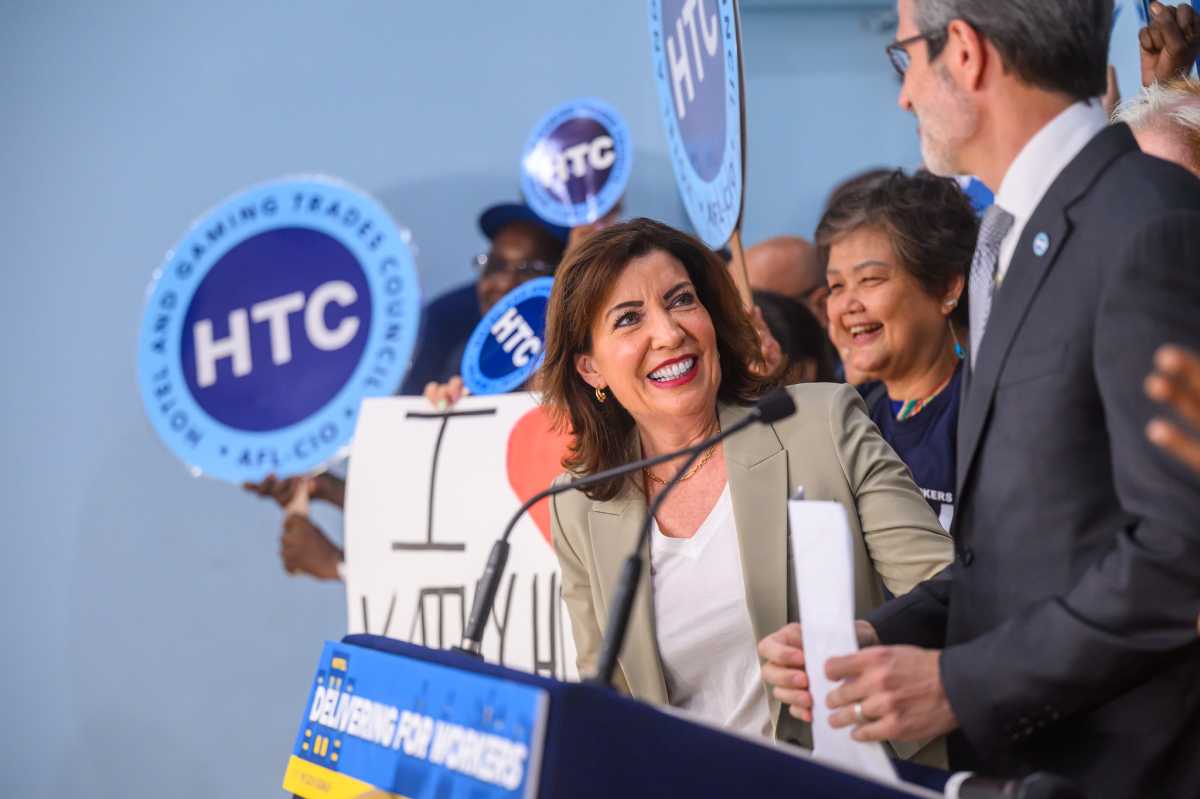The prime minister of Trinidad and Tobago, Kamla Persad-Bissessar, recently invoked some pretty big political names of global renown in a strained effort to draw an analogy with the quicksand in which she and her government seem to be mired. The names of Bill Clinton and England’s Tony Blair were among those referenced as political figures who, Bissessar contended, headed governments that experienced mid-point rejection similar to what she has encountered. The prime minister asserted that the bounce-back capability of leaders like Clinton and Blair was nothing she could not herself duplicate.
Clinton’s exceptional political skills are a matter of record, acknowledged grudgingly even by many of his political adversaries. Blair seemed to have all of the U.K. eating out of his hand, until a perplexing allegiance to the senseless George Bush Iraq policy precipitated his fall from grace. Which is to say that, even with all things being equal, identifying the political acumen demonstrated by the likes of Clinton and Blair as eminently within her own reach may be seen as somewhat of a stretch for the prime minister. But all things aren’t equal. No way can the challenge of a Clinton or Blair in righting their ship of state in midstream be called the equal of what confronts Bissessar and her People’s Partnership government in Trinidad and Tobago.
Swept up in a historic wave that surrounded her becoming the first female to attain the prime minister’s post, Bissessar faced little in the way of head winds that looked likely to play havoc with her time at the helm. Joining forces with other camps opposed to the government of the day led by Patrick Manning, Bissessar, in leading her Partnership team to an overwhelming triumph in 2010, had a clear mandate to effectively reverse the Manning course of failure to properly prioritize people’s everyday, nuts-and-bolts concerns. Had the Partnership government brought a single-minded, unimpaired focus to that imperative, irrespective of whatever else constituted its grand design for the country, Bissessar would likely not now be taking heart from Clinton and Blair lessons on the art of the rebound. The problem for the Bissessar administration, well beyond anything Clinton and/or Blair ever had to surmount, is that by mid-point of its five-year term, it had more or less lost all moral authority to govern.
Bissessar’s government had come to such a sorry pass by way of a level of recklessness and arbitrary abuse of power that seemed to be generally regarded as unprecedented in the country. As we have heretofore noted in this space, the government has come across as being not only corrupt, but brazenly so. A steady flow of jaw-dropping actions came to be seen, from quite early, as part of the routine. Major headline makers including the attempt to install an unqualified young woman in one of the top security posts, Bissessar’s award of “senior counsel” status to herself and her attorney general, the naming of so tainted an individual as Jack Warner to the national security portfolio, the surreptitious back-door proclamation (with apparent devious intent) of one section of a criminal justice bill… were complemented by non-stop speculation about malfeasance in the awarding of contract, hiring practices that refuse to be race-neutral and much more.
Apart from what that multiplicity of questionable (or worse) moves, in substance, conveyed, the government too often adopted a tone that was off-putting. While the prime minister herself can’t rightly be tarred for a public persona lacking in civility, the same can’t be said for many others in and around her government. Jack Warner, prior to his break with the Partnership, was frequently associated with behavior, during public discharge of official duties, that bordered on vulgar. Others, including Attorney General Anand Ramlogan (who reportedly is part of the “cabal” that “runs things” in the administration) have had their share of unflattering exposure, as far as performance style unbefitting their station.
One telling indicator of mean-spiritedness emanating from elements in or linked to the government has been a deliberate attempt to diminish and demean the contribution of Dr. Eric Williams, who charted Trinidad and Tobago’s course from colonial status to sovereignty. Baring an inability to disagree without being disagreeable, these purveyors of ill will evidently saw their position in or close to the corridors of power as fortuitous for a rollout of anti-Williams propaganda.
All of this came with the package for which voters unknowingly signed on in 2010, drawn by the allure of a leader who broke the glass ceiling and catapulted the distaff side into new political space. For their part, the people have evidently determined that there’s simply been too much gulf between promise and performance. By happenstance, the ebb and flow of the political game in the country in 2013 delivered no less than four opportunities for Bissessar’s ruling party to get a read of public sentiment. And four times has the message been that the euphoria of 2010 has long dissipated. In elections early this year for the Tobago House of Assembly, Bissessar’s party failed to win a single seat. Going against the by then departed Warner in a heartland constituency by-election, her party was again badly beaten. And in two more recent elections, the party again came up short.
Clearly, it looks much like Prime Minister Bissessar’s survivability issues are beyond the capabilities of masterminds like Clinton and Blair and, one would think, herself.

























